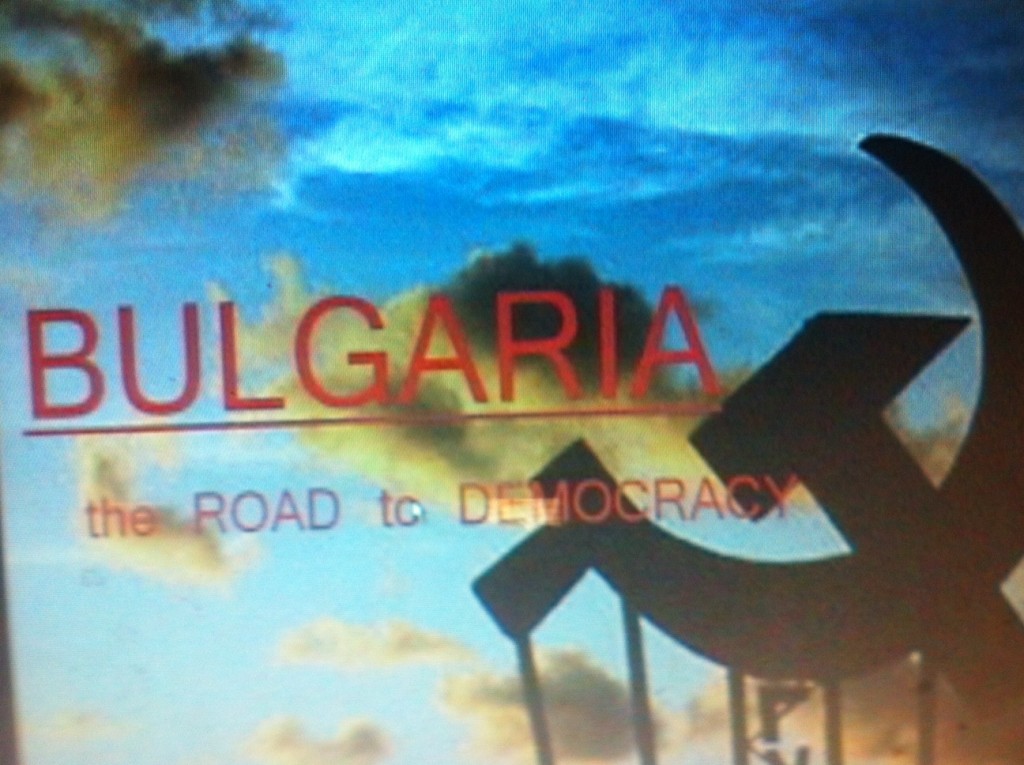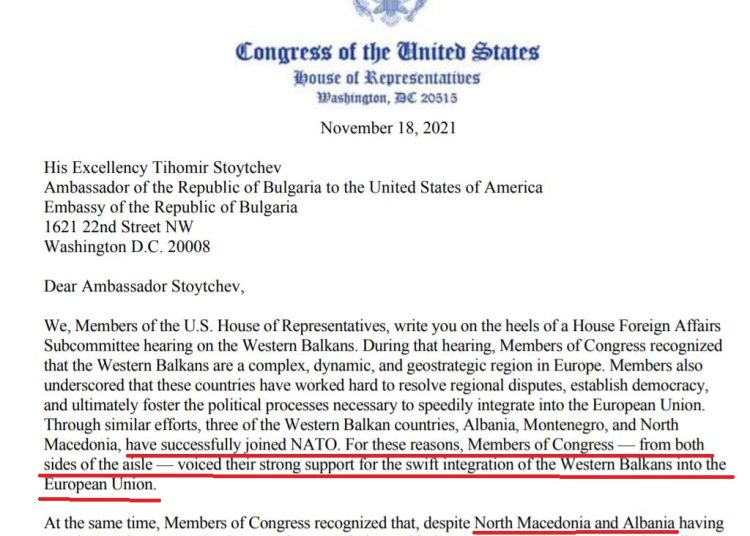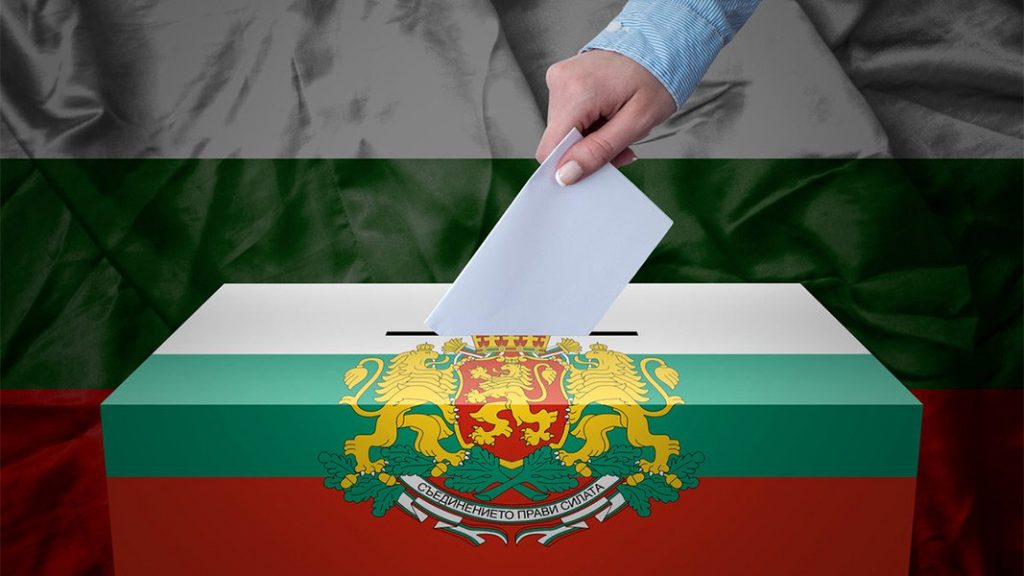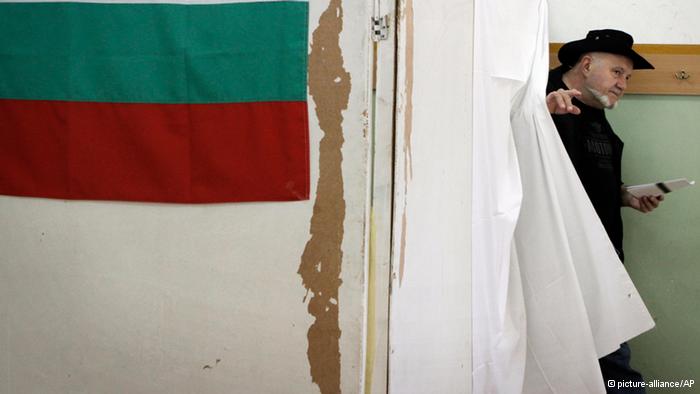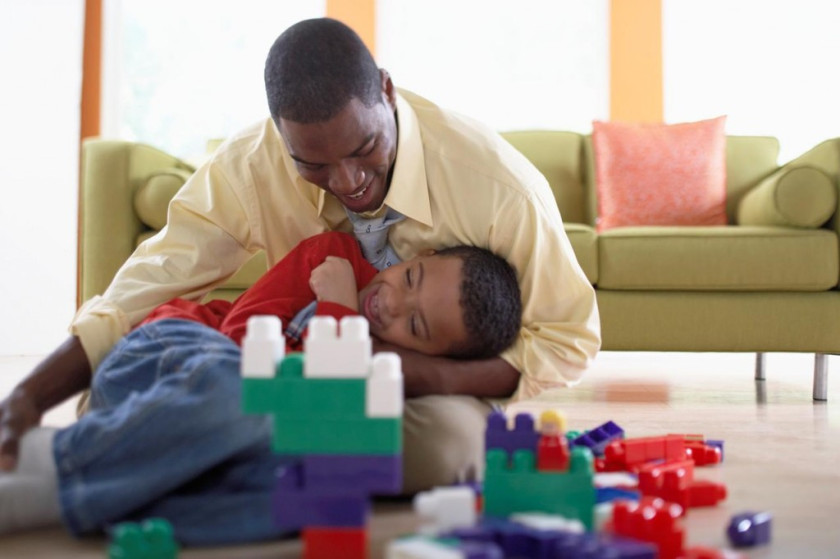BULGARIA has a NEW Government! For Now…
SOFIA, Bulgaria – After three National Parliament elections held in 2021 alone and three acting temporary cabinets, Bulgaria now has a new government based on a 4-partisan coalition. Will it outlast its first 100 days? ONLY GOD KNOWS!
Bulgaria’s PM Designate Petkov Presents New Government Ahead of Parliament Vote
Bulgarian Prime Minister designate Kiril Petkov presented the composition of his future government to the nation as he seeks to end eight months of political deadlock. Petkov, 41, leader of the newly formed centrist party We Continue the Change (PP), reached an agreement a day earlier with three other left-wing and center-right groups to form a coalition government.
Petkov’s party will hold 10 of the 21 ministerial positions, including prime minister and two deputy prime minister posts. The four-party coalition will control 134 seats in Bulgaria’s 240-seat parliament, which is set to vote on approving the new government on December 13. Petkov, whose party came in first on an anti-graft platform, told media on December 11 that the future government will have “zero tolerance” for corruption and said one of his first priorities will be to reform the Anti-Corruption Commission.
The new coalition is expected to have a majority of 134 lawmakers in the 240-seat parliament. “The agreement is 140 pages and details all policies. It gives the chance for the coalition to be strong and work for a long time,” Petkov told the national BNR radio after the party signed the document with each of its partners separately.
SUPPORTING PARTIES:
- Bulgarian Socialist Party (socialist democrats)
- There is Such People (centrist democrats)
- Democratic Bulgaria (democrats)
Present 227 out of 240 MPs registered in the plenary hall. Instead of presenting Kiril Petkov’s candidacy, the plenary day began with a declaration on behalf of the GERB-SDS group, which will not support the draft cabinet.
“You organized brutal repression in the persecution of political opponents,” Desislava Atanasova said. She accused the president of undermining democracy.
The New Cabinet: “Vazrazhdane” will Not Support the “Petkov” Cabinet
The parliamentary group of “Vazrazhdane” will not support the draft cabinet “Petkov”, because according to its leader Kostadin Kostadinov the policies are a continuation of the GERB government, and the impression was that it the cabinet was created in foreign embassies
The New Cabinet: DPS will Not Support the “Petkov” Government
The Movement for Rights and Freedoms (DPS) will not support the proposed program, structure and composition of the Council of Ministers, because it has participated in the talks about them. This was announced by DPS leader Mustafa Karadayi. According to him, the Movement will be a constructive opposition and will contribute to solving problems and protecting rights and freedoms.
2020 Vision for Bulgarian Evangelical Churches Abroad Completed
 Over a decade ago, after publishing Bulgarian Churches in North America: Analytical Overview and Church Planting Proposal for Bulgarian American Congregations Considering Cultural, Economical and Leadership Dimensions, we purposed to explore the possibility of implementing the church planning program among Bulgarian Diasporas in various destination countries of migration.
Over a decade ago, after publishing Bulgarian Churches in North America: Analytical Overview and Church Planting Proposal for Bulgarian American Congregations Considering Cultural, Economical and Leadership Dimensions, we purposed to explore the possibility of implementing the church planning program among Bulgarian Diasporas in various destination countries of migration.
With this in mind, we carried the vision for establishing 20 Bulgarian churches outside of Bulgaria by the year 2020. Cyprus, the United Kingdom and Canada were among the first to successfully implement our program. Bulgarian migrant communities in France, Italy and especially Spain and Germany followed with great enthusiasm – there are 7 Bulgarian evangelical churches active in Span today, and 18 in Germany.
Of course, not all parts of the program proved to be efficient. The program’s modules and training that was implemented, however, have produced 47 strong church plants thus far and the number is growing every month. The program proposed has been confirmed by the leadership we have received from the Holy Spirit. Our commitment to seize the opportunity and work toward adding more Bulgarian churches by the year 2020 has by far surpassed all expectations.
Bulgarian Evangelical Churches in the European Union (2020 Report)
- Bulgarian Evangelical Churches in Germany
- Bulgarian Evangelical Churches in Spain
- Bulgarian Evangelical Churches in England
- Bulgarian Evangelical Churches in France
- Bulgarian Evangelical Churches in Belgium
- Bulgarian Evangelical Churches in Italy
- Bulgarian Evangelical Churches in Cyprus
- Bulgarian Evangelical Churches in Crete
Bulgarian Evangelical Churches in America (2020 Report)
- Bulgarian Evangelical Churches in Chicago (2020 Report)
- Bulgarian Evangelical Churches in Texas (2020 Report)
- Bulgarian Evangelical Churches – West Coast (2020 Report)
- Atlanta (active since 1996)
- Los Angeles (occasional/outreach of the Foursquare Church – Mission Hills, CA)
- Las Vegas (outreach of the Foursquare Church – http://lasvegaschurch.tv)
- San Francisco (occasional/inactive since 2012, Berkeley University/Concord, CA)
Bulgarian Evangelical Churches in Canada (2020 Report)
- Toronto (inactive since 2007)
- Toronto/Slavic (active since 2009)
- Montreal (occasional/inactive since 2012)
CURRENTLY INACTIVE CHURCHES/CONGREGATIONS:
- New York, NY (currently inactive)
- Buffalo, NY (occasional/inactive)
- Jacksonville, FL (occasional/inactive since 2014)
- Ft. Lauderdale / Miami (currently inactive)
- Washington State, Seattle area (currently inactive)
- Minneapolis, MN (occasional/inactive since 2015)
READ MORE:
- First Bulgarian Church in Chicago Opened in 1907
- Gateway Cities for Bulgarian Evangelical Churches
- How to Start a Bulgarian Church in America from A-to-Z
- Unrealized Spiritual Harvest as a Paradigm for Cross-Cultural Ministries among Migrant and Disfranchised Ethnic Groups in America Today
Bulgaria Set for Yet Another Election in the Spring of 2022
Current Socialist Bulgarian President won a second term with the overwhelming support of President Biden. However, during the election debates, President Radev slipped and claimed the Ukrainian Crimea belonged to Russia. By the time the election results were finalized on Monday, both the European Union and the U.S. Embassy in Bulgaria issued notes of warning stating that, Crimea is part of the Ukraine and is currently under Russian occupation. Also on Monday, U.S. Congress forwarded a letter to the Bulgarian government for an immediate decision on the acceptance of Macedonia in the European Union.
These escalations occur in the midst of Bulgaria unable to form a government after three consecutive elections in 2021. As it is highly improbable the current election winner with only 26% will be able to form a government without a political majority, another election may be on the horizon of 2022.
Apart from the Crimean and Macedonian questions, the next Bulgarian government has committed to President Biden’s tri-sea initiative leading to most drastic political restructuring as follows:
1. Accepting the cross-gender Istanbul Convention
2. Pushing Bulgaria toward military involvement in the Crimean Crises
3. Opening Bulgaria as a regional big-pharma hub for modern vaccine testing
Changes in the Bulgarian Constitution may push the country from Parliamentarian to a Presidential republic alike the Russian model set by Putin’s “democracy.” But before all this happens, an actual government will have to be formed in the midst of a very cold winter with rising gas prices and electricity prices already increased by some 30%. Drained by the 2020 pandemic and with no government help or any tax break, the evangelical churches in Bulgaria are not prepared for any of these new challenges.
Bulgarian Election Results Bring More Uncertainty for 2022
New centrist party poised to win Bulgarian election, will not end the long months of deadlock as Routers projects. With the lowest activity ever recorded in Bulgaria, the new election winner cannot form a majority parliament with only 25.34% of the vote. In an even more complicated scenario, to possibly form a coalition with the 2nd highest vote party will add only 22.4% percent, which will still be insufficient for a 51% parliamentarian majority. It certainly looks like a new (fourth) round of parliamentarian elections in the Spring of 2022.
Even more uncertain are the results of the parallel Presidential vote where current socialist president won with 49.4% – just a notch short from the 51% needed to remain in power. It is also disturbing that the current Bulgarian president who represents the Socialist Party in the country was mentioned by name (sic [b]Radev) as an ally and partner (in the video below) by U.S. President Joe Biden. The hope is that in the ballot this coming weekend, the second candidate in the election may overturn the vote in his favor so Bulgaria can receive at least a bit more democracy-oriented new President. For all this, your prayers are still coveted.
New centrist party poised to win Bulgarian election, could end months of deadlock
https://www.reuters.com/world/europe/new-centrist-party-poised-win-bulgarias-election-partial-results-show-2021-11-15/
• Bulgaria holds third parliamentary election this year
• New party set up by two entrepreneurs tops the poll
• Parliament still fragmented, tough coalition talks loom
• Incumbent Radev is frontrunner for presidential run-off
SOFIA, Nov 15 (Reuters) – A new centrist political party emerged as the likely winner of Bulgaria’s national election on Monday, partial data showed, boosting hopes for an end to months of political deadlock in the European Union’s poorest member state. The anti-graft We Continue The Change party (PP), launched by two former interim ministers only two months ago, was in the lead with 25.4% of the vote, based on 61% of ballots counted from Sunday’s election,the third in Bulgaria this year. After two previous elections in April and July produced an inconclusive outcome, Bulgarian voters are keen to see a new government formed quickly to tackle a dire COVID-19 situation, surging energy prices and widespread graft.
“I voted for what we are fighting for and hoping to happen – a more serious change in everything, so that we can have a better life here, at least for our children,” Kostadin Manov, a 39-year-old father of two, said after casting his vote in the capital Sofia.
“This corruption and all this theft should stop.”
But the partial results show the next parliament will be even more fragmented than in April and July, with seven parties represented.
TOUGH COALITION TALKS
Voter turnout in Sunday’s vote is estimated at about 40% – a historic low amid public disillusionment and apathy and also coronavirus infections that have left hospitals overwhelmed. The centre-right GERB party of long-serving premier Boyko Borissov was seen coming in second place with 22.2% of the vote. His decade-long rule ended with the April election amid public anger over his failure to crack down on corruption.
President Rumen Radev, a harsh critic of Borissov, won 49.2% of votes in a presidential election that also took place on Sunday and is tipped to win a second five-year term in the largely ceremonial post in a runoff set for Nov. 21.
Analysts said the new PP party – set up by two Harvard-educated entrepreneurs – looked better positioned to seal a coalition with the support of the Socialists, who won 10.3% of the vote, the anti-graft alliance Democratic Bulgaria with 6% and the ITN party of TV talk show host Slavi Trifonov.
Trifonov’s party had topped the July vote with 24% but the partial results show it now getting just 9.8% after his failure to forge a government.
However, tough coalition negotiations lie ahead before a workable government can be formed.
“Forming a government… will be more complicated because at least four parties will be needed for a majority,” said Dobromir Zhivkov, political analyst with Market Links pollster.
PP leader Kiril Petkov promised on Sunday to be open to dialogue and compromise in coalition talks but said his party would not renege on pledges to overhaul the judiciary and clamp down on corruption. read more
“Bulgaria is headed onto a new path,” said Petkov, who hopes to become prime minister and to have his PP co-founder, Assen Vassilev, as finance minister.
Third National Elections for 2021 in Bulgaria
November 10, 2021 by Cup&Cross
Filed under Featured, News, Publication
This weekend, Bulgaria is holding another, third national elections for 2021. This one has a double outcome – new parliament and a new president. After not being able to form a government in the first two elections for 2021, the country is heading to a major political storm within the growing pandemic. Apart from struggling economically with other EU countries, Bulgaria is currently leading with death cases due to COVID and the temporary acting government has been hopelessly drifting between strong restriction measures of virtually all business and gatherings or a complete lock-down for weeks at the time. None of these has brought any desired results.
On the contrary, virtually all evangelical churches are struggling to respond to the needs of their congregations pressed between the harsh restrictions and keeping the lights on as commercial electricity cost has increased over 33% this year alone. While the Eastern Orthodox church in Bulgaria is subsidized with some $10-25 million and the Muslim confession with $3 million, the evangelical churches are only hoping to get some grants after this year’s national census is counted. By accepting state subsidy, however, religious groups in Bulgaria are entering a season of dependence on secular government. For the evangelicals this means:
- Churches and ministers must declare all foreign currency money flow and foreign bank accounts
- Participation of foreign persons in the administration of any denomination is strictly forbidden
- Foreign parsons shall not be allowed to speak at religious meetings in any way shape or form especially religious sermons
- Anonymous donations and donorship to religious organization is not permitted
- Bulgarian flag shall be present in every temple of worship
- The new measure will block all foreign interference in the faith confessions and denominations in Bulgaria
As if all this is not enough, just a week before the elections it was revealed that the electronic vote this time will be done on voting machines purchased from nowhere else but Venezuela. Over 400 such machines have been brought into the country without registration “for spare parts,” which brings even more confusion and suspicion to the already fragile election process that has occurred in Bulgaria almost every year since 2005.
Government Elections in Bulgaria (2005-2022):
2005 Parliamentary Elections
2006 Presidential Elections
2007 Municipal Elections
2009 Parliamentary Elections
2009 European Parliament elections
2011 Presidential Elections
2011 Local Elections
2013 Early parliamentary elections
2014 Early Parliamentary Elections
2015 Municipal Elections
2016 Presidential election
2017 Parliamentary elections
2019 European Parliament election (23-26 May)
2019 Bulgarian local elections
2019 Municipal Elections
2021 March National Parliament election
2021 Second National Parliament election
2021 Third National Parliament and Presidential elections
Bulgaria: What to Watch for in the November 14 Elections
Although the third for the year, on November 14 for the first time the elections will be 2 in 1 – for president and MPs. The vote is taking place at the peak of the fourth wave of coronavirus in Bulgaria and anti-epidemic measures will again be observed, and the number of those who voted with a mobile ballot box will be clear on election day.
For the second time, the voting in the sections with 300 and more voters will be only with machines, but for both votes the voting procedure will be with one device, and it will be necessary to indicate what to vote for and wait for the printing of two receipts. Therefore, it is expected that the process will be slower, and if the cases of patients in the coming days increase – this will affect the turnout.
In front of the voters
The third election of the year will be held at the peak of the fourth wave of the coronavirus epidemic, which may be a cause for concern among some eligible voters. For now, there will be no stricter anti-epidemic measures in the polling stations and they will remain known until now – wearing masks, disinfection, distance and frequent ventilation in the premises. From the previous two votes it cannot be concluded that the incidence will be denied by voters, as on April 4, when the peak of the third wave was, voter turnout was 50.61%, while on July 11, when there were few registered cases – only 42.19% .
Quarantined voters will be able to ask to vote with a mobile ballot box at the address where they are isolated, even on election day. It would be an obstacle if by the day of the vote in a given settlement there is no section for quarantined, as a condition to have only 10 applications submitted before. However, the Central Election Commission did not know whether it would be possible to open so many quarantined sections in recent weeks.
For the first time this year, the elections will be 2 in 1 – for president and MPs, which could lead to delays and queues in some sections. In the sections with 300 and more voters, the voting is only with machines, and the voting time is expected to be 5 minutes again.
There are two points that a voter using a device should be aware of. The first is at the beginning, when the machine asks which type of election the voter wants to vote for and whether for both – he/she can mark once and by continuing, confirm, after which he/she has no right to correction. The second is when printing the segments with the choice at the end – if the voter has exercised his/her right to vote in both votes, he/she must wait for the machine to print two receipts – one short and one longer, and pull them out after hearing a beep. If it does so while printing, the machine may lock.
The voter will also have a problem if he/she decides to take pictures of how they vote, as the recording of the vote is prohibited and the sanction is BGN 1,000.
Possible problems for the election commissions
There seem to be two main challenges for sectional election commissions – one is related to the machines and the other is to the counting of the voting receipts.
The problems with the machines can be of different nature – technical malfunctions, errors in the lists as on April 4 in Veliko Tarnovo, when there were exchanged names and numbers in one of the candidate lists, errors in cleaning, which can only be done with alcohol, etc. . A technician will be available, but if the fault is not rectified, a paper ballot will be put to the vote following a decision by the district or central commission.
Difficulty and delays in reporting the results would be caused by the decision to count all machine voting receipts, which were taken by the Central Election Commission but revoked by the Supreme Administrative Court. The commission should now determine in how many and in which sections the control receipts should be counted, and the result will be taken from the protocol printed by the machine, and the result of the control count will not be entered in the protocol.
However, the count will slow down the section commissions where it is done. After the end of the election day, the commissions will have to open the box with the receipts, divide into two piles those for the presidential and those for the parliamentary vote and then count, without taking into account the preferences for MPs. According to experts, voluntary or unintentional human errors are possible during the counting, as well as manipulations by destroying part of the receipts. This will certainly delay the transmission of the results to the district election commissions.
Bulgaria set for third election this year in November
Protest party ITN edged out the conservative GERB in the latest vote, but was not able to form a government. Bulgarian President Rumen Radev will also be running for reelection. Bulgaria will hold its third parliamentary election since April on November 14, President Rumen Radev announced Saturday. Following months of deadlock, Bulgarians are set to once again choose a new parliament after neither of the three largest parties was able to secure a majority government after an election in July. On Saturday, Radev announced that presidential elections will be held on the same day to save money. He is hoping to secure his second term in November.
President Biden delivers remarks at Bulgaria’s Three Sea’s initiative, which aims to reinforce ties between countries along the borders of the Baltic, Adriatic, and Black Seas.
Who is predicted to win?
Protest party ITN, that emerged from mass demonstrations against corruption in 2020, won the July election but was not able to secure a majority in parliament.
 Anti-corruption protests in the summer of 2020 led to the creation of a protest led by an entertainer
Anti-corruption protests in the summer of 2020 led to the creation of a protest led by an entertainer
The latest polls indicate a similarly inconclusive race ahead of the November election.
The pro-EU, centre-right party Citizens for European Development of Bulgaria (GERB) is now leading in a Politico poll by 23% with ITN on 20% support.
In contrast, the leftwing alliance, led by the Socialist Party, is trailing the top two with 16% of the popular support, according to the poll. It achieved 13.2% of the vote at last July’s parliamentary elections.
The split sets the scene for more political instability amid the COVID-19 economic crisis and Bulgaria’s desire to enter the eurozone in 2024.
What of the presidential elections?
President Radev is an independent who is widely considered one of the most popular politicians in Bulgaria. He is tipped to win a second term in office.
While the Bulgarian president’s powers are largely ceremonial, he can also propose legislation and force new votes in parliament by vetoing policy.
“I will count on the support of all respectable Bulgarians on the big issues – the fight against poverty and injustice,” said Radev.
Government Elections in Bulgaria (2005-2019):
2005 Parliamentary Elections
2006 Presidential Elections
2007 Municipal Elections
2009 Parliamentary Elections
2009 European Parliament elections
2011 Presidential Elections
2011 Local Elections
2013 Early parliamentary elections
2014 Early Parliamentary Elections
2015 Municipal Elections
2016 Presidential election
2017 Parliamentary elections
2019 European Parliament election (23-26 May)
2019 Bulgarian local elections
2019 Municipal Elections
Facebook Is Still King Among Social Networks for Churches in 2021
Facebook Is Still King Among Social Networks
If your church is deciding on which social network to use, Facebook is still number one. In fact, Pew Research Center found that 68% of adults are Facebook users. The only other network that came close was YouTube at 40%. However, using both doesn’t hurt, especially if your church focuses on video content.
Don’t Count Out Instagram
Many church statistics focus mainly on Facebook for social media, but it’s important to not count out Instagram. Not only do 35% of adults use Instagram, but Pew also found that 71% of 18-24 year-olds use Instagram. If you’re trying to reach out to a younger audience, it’s worth expanding your social media strategy to include Instagram.
YouTube Works Well For Younger Members
Want to better engage your younger members or expand your reach to 18-24 year-olds? Pew found that 94% of people in that target demographic use YouTube regularly. Of course, 75% of adults overall use YouTube. So, it’s beneficial no matter what age you’re trying to reach. Consider YouTube for sermons, showing community outreach programs in action, Bible study sessions and even fun skits to show a humorous side to your church.
Hope for the Hippocampus
Call for Parents and Caregivers to Have Time of Uninterrupted Play with Their Children
As a Board Certified Licensed Professional Counselor with nearly 20 years of experience in the field of play therapy, I understand the vital importance of play in the life of a child. With the COVID-19 pandemic which has swept the world, our children are being exposed to stressors and events that no child should ever have to endure. Children need play in their lives now more than ever before. Play is their only way to communicate and to process these traumatic times. A time of play allows for children to increase their emotional strength and reduces stress which in turn increases our children’s immunity defenses.
It is for this reason that I feel the urgency to call all parents and caregivers to set aside a minimum of 45 minutes to 1 hour during the day to play with their children. This structured time should meet the following guidelines:
- If possible should be one parent with one child at a time even if you have to limit play to only 30 minutes
- Play time is uninterrupted with no texting, social media, online surfing or phone use of any type
- Should be in a safe place
- Parents and caregivers need to offer a time which is non-judgmental in the parameters of protection
- Needs to be led by child and not adult, offering no suggestions about what or how to play unless asked from child
- Do not interrupt the child’s process by being impatient for child to finish tasks at hand
- This is not a time for teaching. It is a time of reflecting and empathetic listening of feelings.
- Repeat back to the child their actions during play instead of offering your biased insight.
- Listen to what your children are telling you via their play
- Provide unconditional love and support
There is always time for play. It should not be underestimated. During this time of crisis it is a basic necessity and will strengthen our children. We will make it through this together.
– K. Donev, LPC/MHSP, NCC


